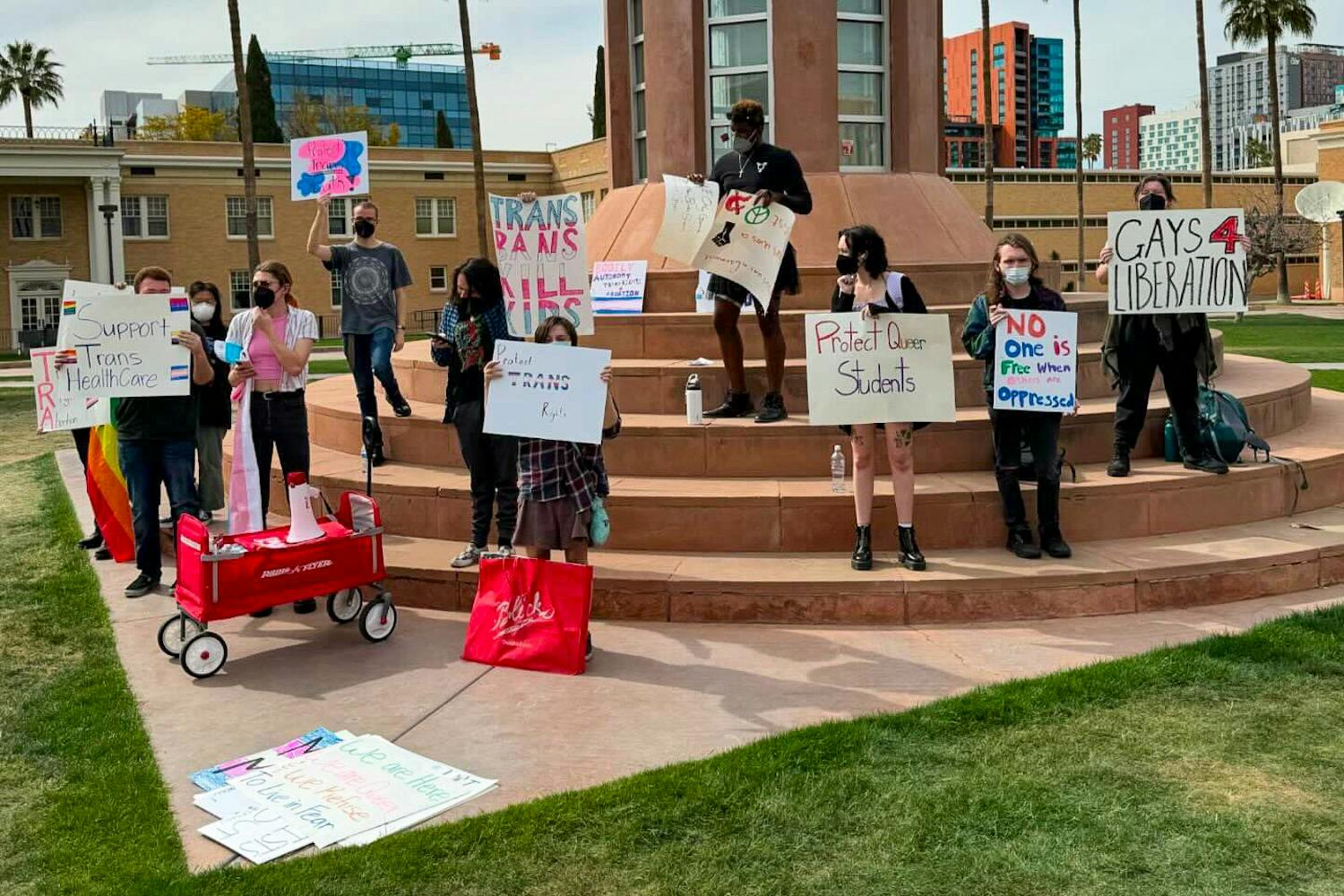“Arizona is the meth lab of democracy.”
This was political satirist Jon Stewart’s view of our state four years ago in response to immigration legislation Senate Bill 1070, arguably the most controversial bill signed into action in Arizona. That is, until now.
On Thursday, the Arizona Legislature approved a bill that would protect the right of individuals and businesses to refuse service to anyone on the grounds of religion.
The bill comes on the heels of a New Mexico Supreme Court ruling that said a photography company discriminated against a same-sex couple in 2006 when it refused to shoot their civil commitment ceremony.
Arizona’s subsequent “right to religious freedom” bill has elicited outrage from the community, with scattered support throughout.
Given the impetus for the bill, the unspoken agenda has widely been interpreted to be attacking the LGBTQ community. However, we should also be examining how the language of this bill will affect a whole host of individuals, not just those in the LGBTQ community.
Restaurateurs could refuse to serve women, low-income families and families that identify as any religion that conflicts with the business owner’s.
Supporters of the bill say that this is not discriminatory as it merely protects the religious rights of individual businesses, but why should the right to religious freedom negate the individual rights of human beings and deny them to services?
Among the many problems with the bill, this “right to discriminate” principle does not specify whether public servants such as policemen, firefighters, doctors, etc. are excluded. Public servants are public specifically because they are expected to serve anyone who needs their aid. If we include the exception of religious conflict in these services, how many lives will be altered when people go to get a drivers license or exercise their right to vote?
Republican proponents say they are fearful that liberal interpretation of the bill will turn it into something it is not, and should it fail, “it will because of the temperate and inaccurate rhetoric.”
But I am also saddened by the rhetoric coming out of my state. I no longer wish to sit idly by and tiptoe carefully around the feelings of my friends and family who tout their right to “religious freedoms” as the crux of their discriminatory beliefs.
Too often we've heard it: “I have gay friends, but …” But. That word belies a bevy of misinformed and frightful beliefs that do nothing but reinforce the fact that we may never escape these prejudices.
If a business wants to discriminate against its clientele, then they can do so and face the financial repercussions. But in no way should their actions and right to discriminate be protected by the law.
“In my life and in my businesses, if I don't want to do business or if I don't want to deal with a particular company or person or whatever, I'm not interested,” said Gov. Jan Brewer to CNN on Friday. “That's America. That's freedom. But I don't know that it needs to be statutory.”
After all, if we are not equal by the law, how will we ever be equal in the court of public opinion?
History tends to repeat itself, but it is important that we as a state learn from our past mistakes and do not stand on the wrong side of it for future generations to look back on in disgust.
Standing by while the rights of others are trampled upon simply because we don’t belong to the groups that are being marginalized will only mean there will be no one left to speak up when they come for our rights.
Reach the columnist at llonghi@asu.edu or follow her on Twitter @lolonghi




